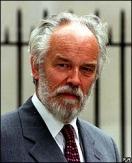The Home Office – a serial offender against science
The bust-up between the Home Office and its drug advisers is the latest in a long series of incidents in which it has shown contempt for scientific advice.
As Professor Reece Walters of the Open University put it in an article in Criminal Justice Matters in 2008: “….civil servants in the Home Office do not want to `learn' from academics - in their minds, there is little that academics can teach them.” What they wanted to do, he said, was “rubber-stamp the political priorities of the Government of the day”.
Strong words, but they did not come out of the blue. Academics began to fall out of love with the Government, and especially with the Home Office, as it betrayed the promises it had made that policy would be grounded in evidence-based research.
John Haskey, a leading expert on family policy, felt the cold wind of censorship in 2004 when he produced for the ONS a report suggesting that welfare benefits encouraged single motherhood. He estimated that more than 200,000 people may be choosing to live apart to maximise their benefits. This article was delayed because it did not support the policies being pursued by Gordon Brown, then Chancellor of the Exchequer – but it was eventually published.
Paul Marchant, a statistician from Leeds Metropolitan University has been arguing for years that evidence being used by the Home Office to support the spending of millions of pounds on improving street lighting was flawed. His target is a 2002 report claiming that better street lighting cuts crime.
The study was flawed, he claims, because its authors failed to seek advice from statisticians about whether the evidence supported the conclusions. His criticisms have never been adequately answered, and the report continues to be used by local authorities to justify additional street lighting.
Professor Tim Hope of Keele University is another academic who has clashed with the Home Office. Between 1999 and 2002 he led a consortium of university-based researchers under contract to the Home Office to evaluate the impact of local crime prevention measures under the Reducing Burglary Initiative. He complained that although the research produced substantial data, information and knowledge, the Home Office manipulated the publication process to avoid making it public because it did not like the conclusions.



Home Office critics: left to right Professors Tim Hope, Reece Walters and Rod Morgan
When some of the data were published by Professor Hope’s co-researchers in 2003, accompanied by claims from Home Office minister Hazel Blears of “a tremendous impact on burglary rates”, he publicly dissociated himself from the findings. He said in Criminal Justice Matters that what had occurred was an example of the “silent silencing” of criticism, combined with the amplification of those who agreed with the Home Office line, in order to drown out criticism.
Professor Simon Hallsworth, director of the Centre for Social and Evaluation Research at London Metropolitan University, advised government on gangs and violence, and the approach to adopt when faced with violent street crime (as set out in Tackling Violence Action Plan).
He dismisses the policies as “flat earth crime science - ... a cold, soulless, administrative technocratic programme for mapping and managing risks wherever they appear: a post-welfare programme fit for the emergent national security state” that is unlikely to work.
Professor Rod Morgan, former chair of the Youth Justice Board and former Chief Inspector of Probation describes himself in the same issue of Criminal Justice Matters (June 2008) as “incensed ... by the incomprehension and arrogance regarding the research process which some administrators displayed”.
His opinion is: “Despite the mantra about pursuing evidence-based policy, some of the politically highest-profile policy areas, such as anti-social behaviour, involved initiatives where there was little or no evidence base and no serious attempt to collect data, even to the point of not honouring government obligations to monitor ethnic impact.”
Ms Jan Berry, the out-going Chairman of the Police Federation of England and Wales, said of the government's police reform agenda and its approach to consulting police officers: “Over the last 6 years, there has been a dogged attitude by this government to appear to consult while pushing ahead with their own agenda. This has been to the detriment of policing and to the detriment of the criminal justice system as a whole”.
One can face this grotesque situation with equanimity, as some in academia prefer, or with regret and frustration as Professor Hope and those listed here have done. “It was with great sadness and regret that I saw our work ill-used and our faith in Government's use of evidence traduced” he wrote.
In response to the charges made by Professors Walters and Hope, a Home Office spokesman said: “The Home Office has not yet seen these allegations. However, our research is commissioned from leading scholars, as a result of competitive tendering, and is subject to external and independent peer review.”
Unfortunately the critics view peer review as a major part of the problem. The Home Office has not published its mechanisms and procedures for the process and Professor Hope has complained that we are left in the dark as to how, in practice, the integrity of the procedures is maintained.
He argues: “. . . . . The actual practice of the Home Office would seem fundamentally to contradict the principle of peer review. Far from ensuring the integrity of its publications, or of the research that it has commissioned, the practice of the Home Office seems to be the manipulation of a secretive process with certain select ‘peers’ as its accomplices.”
The Home Office spends over £20 million on research papers in an average year - research which is supposed to offer independent analysis of subjects such as crime and asylum, so that appropriate policies can be drawn up in response.
But is the Home Office getting independent, appropriate and solid data? And when it does, is it taking any notice?
Having participated in several Home Office exercises, I support Professor Walters when he describes the process offered by the Home Office as endorsing “a biased agenda.” My recollections were of participating in an exercise where the topic had already been decided, already cut and dried, and the plan to implement already constructed.
These are not moot, urbane, or philosophical points but issues that tear into the guts of any democracy.
If the Home Office, or any Whitehall civil servant, suppresses a document or massages data that could alter or ameliorate ministerial decisions its needs to be made clear to the minister and at least a résumé presented – not, as seems to be the case currently, of filtering out any opinion as if they never actually existed.
So this week’s row over advice from Professor Nutt will hardly surprise those who have spent the past five years cataloguing the unwillingness of the Home Office to countenance advice that contradicts its own policies.
Professor Reece Walters called for academics to boycott research commissioned by the Home Office and Scottish Executive. “Until the Home Office develops a research agenda that serious address the crimes of the powerful and permits independent scholarship to occur without interference and to be published verbatim, then I say academics must boycott the seeking of, and the participation in, Home Office or Scottish Executive research.”



